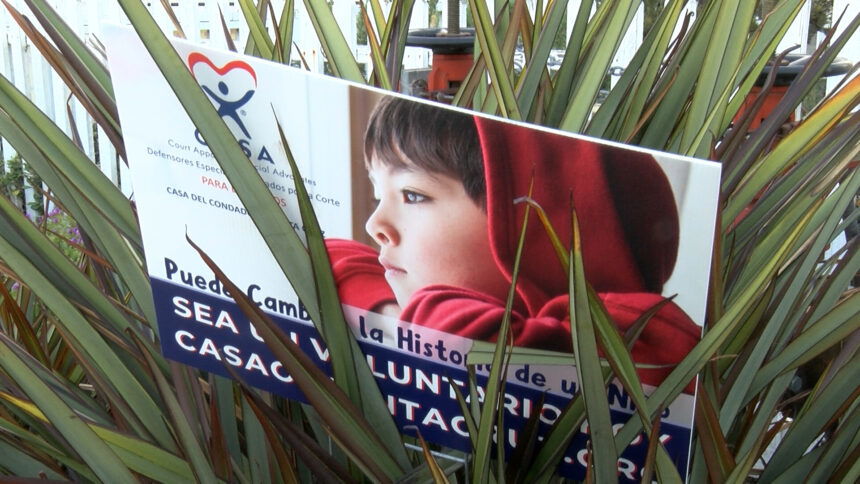Foster care workers seek mentors for foster kids

SANTA CRUZ, Calif. (KION) Hundreds of children across the central coast are currently waiting for a home to call their own, even if it is just temporarily.
Statistics from Court Appointed Special Advocates (CASA) in Santa Cruz show no more than 3 percent of foster youth go on to earn college degrees and 1 in 5 ends up homeless at 18 when they age out of the foster care system.
Staff and volunteers know that to foster youth-- guidance and motivation are what they need to fight for a better life.
More than 300 children are currently in the foster care system in Santa Cruz county. The staff at CASA says their goal is to have a mentor for every child to give them a voice- most importantly, to remind them they are not alone.
Thousands of foster children across the state and the country come from situations of physical, sexual abuse, and neglect.
Paola Centeno considers herself one of the lucky ones.
“Not having a supportive family that was teaching me the right stuff in life and unfortunately was not protecting me as they should, my experience in foster care was very unlike other children, I feel like mine was very easy going, I was able to get the right support that I needed,” says Centeno.
As a Mexican immigrant, Paola entered the foster care system at 15. Not knowing American culture or where life would take her, she eventually gained residency and paved her way through uncertainty.
Now 22, a mother and college student with dreams of being in the dental field, she credits her success story to the help of her long-time mentor.
“Dawn has been a huge impact in how I raise my daughter, I wasn’t always making the best decisions, she very fortified that feeling that I didn’t feel that I had,” says Centeno.
Clarita Cortes, a staff member at CASA in Santa Cruz County explains that most children and teens have a difficult time getting used to life in foster homes.
But the transition is particularly hard for immigrants- a situation that hits very close to home for her.
“With all my uncertainty of getting to a new country, new language, everything, it’s very important for our Latino community, our Latino leaders out there to come and volunteer,” says Cortes.
She says 65% of the children in foster care in Santa Cruz county come from a Latino background and that having a mentor, especially one who speaks their language, can make all the difference. Right now, most volunteers are meeting with the kids about once a week virtually or over the phone due to the ongoing pandemic.
“I see a lot of youth just very lonely, especially during this pandemic, they have to find their own way to entertain themselves and a lot of that time it comes to like their phone and they don’t really have that human contact that they’ve been lacking,” says CASA volunteer and CSUMB student Jackeline Rodriguez.
The staff at CASA say even having their mentors with them in court when they are surrounded by lawyers or have their biological parents present can help children feel at ease.
Volunteers are also able to voice the child’s wants and needs during the hearings.
“I support my CASA youth in court and I also meet her and support her by talking with her and just taking her out to events or sightings like going to eat or the beach,” says Rodriguez.
But as Centeno explains, having a mentor was not just about going out or talking to a friend but having the motivation and inspiration to continue on the path to life after foster care.
“Helping me grow as the woman I am now and teaching me the right steps on being more of myself than what other people want me to be,” says Centeno.
Staff at CASA say the need for guidance is more important now than ever and they are here to support the children and their mentors every step of the way.
Anyone interested in becoming a mentor must be at least 21 years old.
For more requirements and information, contact CASA at (831) 761-2956